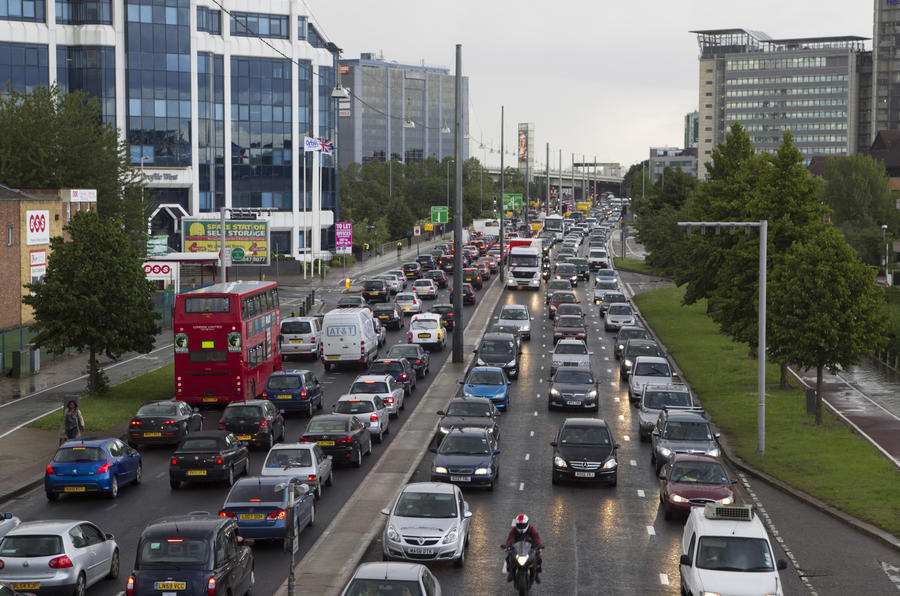The estimated number of unlicensed vehicles on UK roads has risen significantly since the last survey took place in 2019, new figures released by the Department of Transport (DfT) suggest.
An estimated 1.9% of vehicles on the road in the UK are unlicensed and avoiding vehicle excise duty (VED) - notably higher than the 1.6% figure recorded the last time the survey took place.
The DfT estimates the owners of 719,000 vehicles in active stock haven't paid the tax, up from 634,000 in 2019, with a potential revenue loss of around £119 million over one year.
The government department attributes the rise in unlicensed vehicles to impacts of the Covid-19 pandemic, including limited enforcement and economic issues meaning some drivers couldn't afford to pay.
Some of the lost revenue would have already been recovered by the Department for Vehicle Licensing Agency (DVLA), the DfT says, which can collect tax by enforcement or from late payments.
The abolition of the paper tax disc is still considered to be a key factor in the increase in untaxed cars.
“It’s hugely concerning that we’re seeing ever greater numbers of unlicensed vehicles on the roads, with the total number now standing at nearly three-quarters of a million,” said Nicholas Lyes, the RAC's head of roads policy.
“While we would like to think the abolition of the paper tax disc back in 2014 isn’t responsible, the fact remains that evasion has increased significantly since then to the point where a shocking two in every 100 vehicles on the road aren’t taxed."
Lyes believes that evasion is harming the road network and that the DVLA should ramp up levels of enforcement.
The AA believes the figures could have been a lot higher, due to the increase in cars given SORN (statutory off road notification) status during lockdown, then returning to the road in 2021.
“Today’s official figures show that the law is still on the hunt for car-tax-evaders. However, the increase in non-payment of Vehicle Excise Duty isn't as bad as might have been feared, given the hundreds of thousands of cars granted a Statutory Off Road Notification status during the lockdowns,” said Jack Cousens, head of roads policy for the AA.
“Some of those vehicles will have been put back on the road with the owners either mistakenly or deliberately forgetting to tell the DVLA.
“High inflation, particularly with pump prices that refuse to drop, despite big falls in the wholesale cost, always pressures many low-income drivers to run the gauntlet and not pay their tax. It's foolish for them to chance their arms, because the penalties are severe, even potentially having the car crushed.”






Join the debate
Add your comment
With the money saved by not giving the EU anything to show that they've paid for something the Gov are likely still doing well out of the "taxless" regime.
2% isnt terrible, they way the government go about things it would probably cost more than 2% of the total tax take to post us a tax disc. However i have never understood why when you do it on line they dont email you a disc. I suspect a large number of people would be happy to do their own.
More of a problem is that i suspect a large percentage of those who dont pay VED, dont insure either. And in most cases these cars wont be registered to anyone, or posibly using cloned or made up plates. Those of us who play by the rules are always the ones who get the worst deal.
In the end, the government have bigger fish to fry (or just dont care), so nothing will change
@LP in Brighton. Agreed, but that doesnt solve the very heavy EVs chewing up the road paying nothing. Change VED to VWD. Tax cars by a combination of Weight and mileage driven per annum. If the tax remain unpaid, adopt the tactics of private parking enforcement - they're pretty effective.
Back on topic, the amount lost in unpaid VED is trifling compared to the cost and suffering meted out by uninsured drivers. 137,406 uninsured drivers arrested in 2019 - one every 4 minutes. They cost the country £2bn in 2019. Now that needs enforcement
Yes, a vehicle weight tax certainly has its benefits, not least by fairly taxing EVs and HGVs which disproportionally wear out roads. And it might just encourage vehicle manufacturers to produce lighter more efficient vehicles in place of today's heavyweights. Frankly almost any road tax system is better than today's complicated age based / price based / CO2 based muddle!